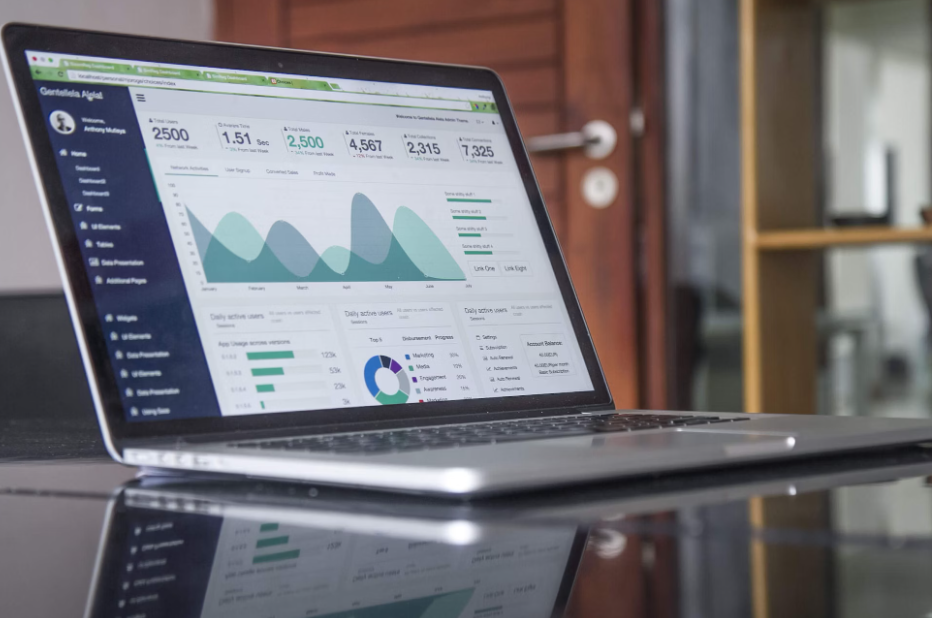
This article is designed to help Shopify store owners effectively understand and leverage Shopify KPIs. Here, you'll discover the crucial metrics that drive success in the dynamic world of e-commerce.
If you’re new to online retail or looking to optimize your existing store, our insights into Shopify KPIwill provide the knowledge and tools to track performance, make informed decisions, and propel your business toward greater success. Let's embark on this journey to unlock the full potential of your Shopify store through strategic KPI management.
The Importance of KPIs for Shopify Store Success
In e-commerce, especially for Shopify store owners, understanding and monitoring Key Performance Indicators (KPIs) is essential for business success. KPIs act as a compass, guiding store owners through online retail's competitive and ever-changing landscape. They provide valuable insights into the effectiveness of strategies, help identify areas for improvement, and enable data-driven decision-making.
Tracking Progress and Growth
KPIs help measure progress against business objectives, allowing store owners to assess whether they are on track to meet their goals.
Customer Insight and Engagement
By analyzing customer-centric KPIs, Shopify store owners can better understand their audience, leading to more effective marketing and improved customer experiences.
Optimizing Operations
Operational KPIs shed light on the efficiency of various processes, from order fulfillment to inventory management, ensuring optimal resource allocation and cost management.
Strategic Decision Making
With the right data, business owners can make informed decisions about marketing strategies, product development, and market expansion.
KPIs are metrics and tools for steering Shopify stores toward profitability and long-term success.
Core KPIs Every Shopify Store Owner Should Monitor
For Shopify store owners, certain core KPIs are fundamental to monitor regularly. These indicators are critical for understanding the health and performance of the store and for making strategic improvements:
- Sales and Revenue Metrics: This includes tracking daily, weekly, and monthly sales, revenue growth rates, and average order value. Understanding these metrics is essential for evaluating the store's financial performance.
- Customer Acquisition Cost (CAC): This metric is crucial for understanding the cost involved in acquiring new customers and helps determine the effectiveness of marketing efforts.
- Conversion Rate: This KPI measures the percentage of visitors who purchase. It directly indicates how effectively the store is converting visitors into customers.
- Customer Retention Rate: This metric is vital for understanding customer loyalty and satisfaction. A high retention rate often correlates with long-term business success.
- Cart Abandonment Rate: Monitoring the rate at which customers abandon their shopping carts helps identify issues in the checkout process and opportunities to recapture lost sales.
By keeping a close eye on these KPIs, Shopify store owners can gain a comprehensive understanding of their business performance and identify actionable areas to drive growth and profitability.
Advanced KPIs for In-Depth Shopify Analysis
For Shopify store owners looking to dive deeper into their business analytics, advanced Key Performance Indicators (KPIs) provide a more nuanced understanding of performance and opportunities. These sophisticated metrics offer insights beyond basic sales and traffic data, helping in fine-tuning strategies for enhanced outcomes:
- Customer Lifetime Value (CLV): This metric calculates the total revenue a business can expect from a single customer throughout their relationship. CLV is crucial for understanding long-term value and profitability from customer segments.
- Return on Investment (ROI): Essential for measuring the efficiency of different investments (like marketing campaigns or new product launches), ROI helps determine which expenditures yield profitable returns.
- Net Promoter Score (NPS): NPS gauges customer satisfaction and loyalty by measuring the likelihood of customers recommending the store to others. It’s a key indicator of customer experience quality and brand reputation.
- Bounce Rate: This KPI tracks the percentage of visitors who leave the site after viewing only one page. A high bounce rate could indicate that the site needs to meet visitors' expectations, highlighting areas for UX improvement.
- Average Order Margin: Understanding the profit margin on each order helps in pricing strategies and inventory management. It’s critical for maintaining profitability while staying competitive.
Utilizing Shopify Analytics for KPI Tracking
Shopify Analytics plays a pivotal role in KPI tracking, offering a powerful tool for store owners to gain deep insights into their business performance. Utilizing Shopify Analytics effectively can transform data into actionable intelligence, crucial for informed decision-making and strategic planning.
Access to Real-Time Data
Shopify Analytics provides real-time data, allowing store owners to track performance as it happens, which is vital for responding quickly to market changes.
Custom Reports and Dashboards
Users can create custom reports and dashboards tailored to their specific KPIs, making focusing on metrics that matter most to their business easier.
Integrated Tracking of Sales and Customer Behavior
The platform seamlessly integrates sales data with customer behavior, offering a comprehensive view of how different factors contribute to overall performance.
Segmentation and Filtering
Store owners can segment data and apply filters to analyze specific aspects such as product performance, customer demographics, or campaign effectiveness.
Historical Data Comparison
Comparing current performance with historical data helps identify trends, forecast future performance, and set realistic targets.
Easy Integration with External Tools
Shopify Analytics can be easily integrated with external tools and platforms for a more enriched data analysis experience, including advanced marketing analytics and customer relationship management.
Leveraging Shopify Analytics for KPI tracking gives store owners the necessary insights to optimize their operations, enhance customer experiences, and drive growth and profitability.
Conclusion
Navigating Key Performance Indicators (KPIs) is crucial for any Shopify store looking to thrive in the competitive e-commerce landscape. Understanding core and advanced KPIs gives store owners a comprehensive view of their business, helping them make data-driven decisions that lead to success.
By utilizing tools like Shopify Analytics, businesses can track these KPIs efficiently, gaining valuable insights into their operations and customer behaviors. As the digital marketplace evolves, staying informed and responsive through careful KPI monitoring remains key to achieving sustained growth and success in Shopify.